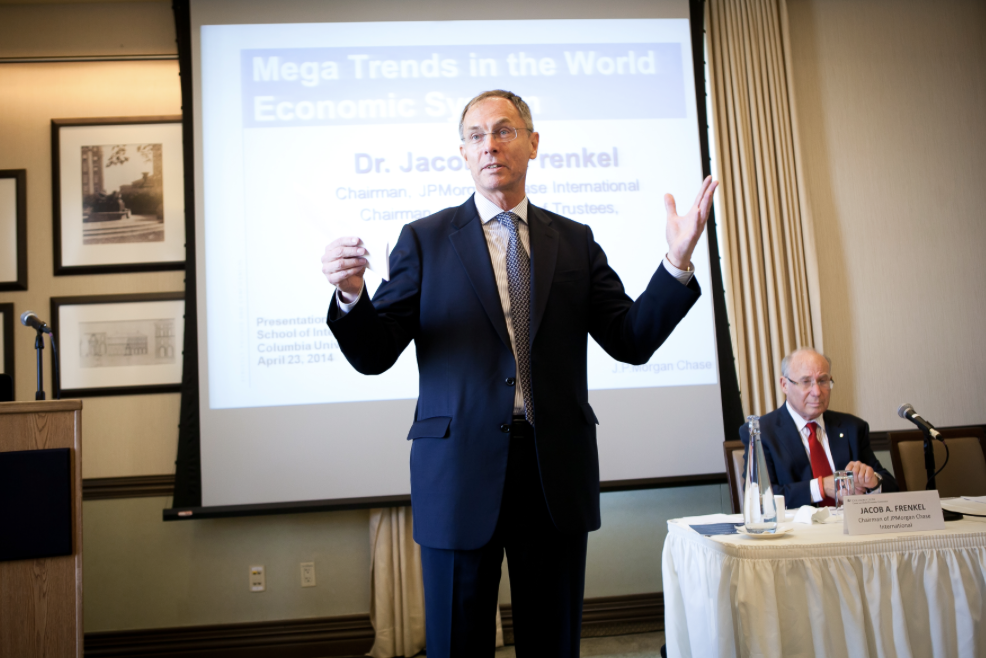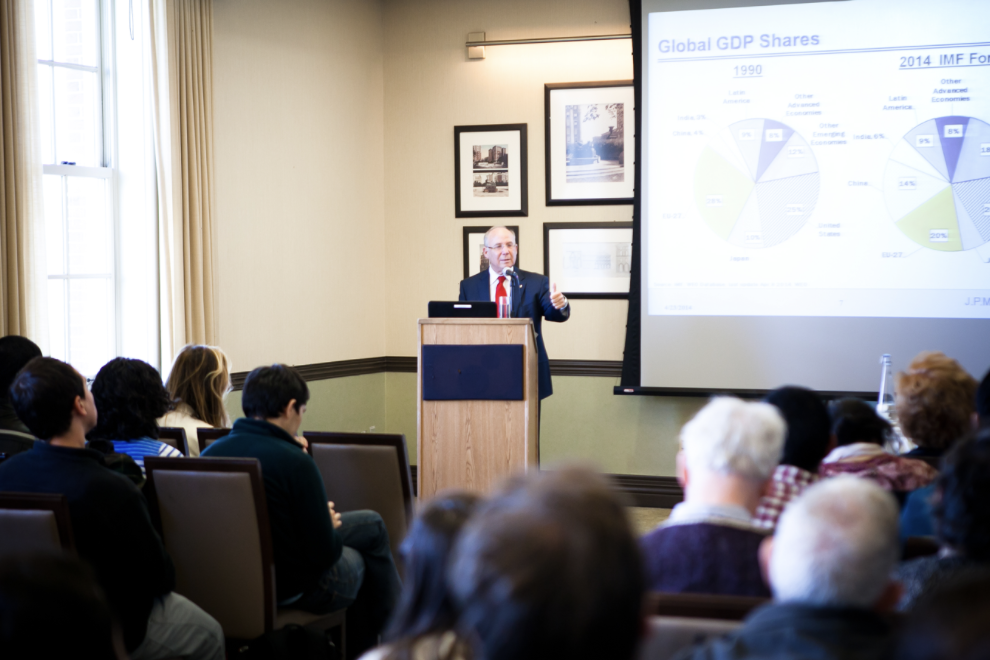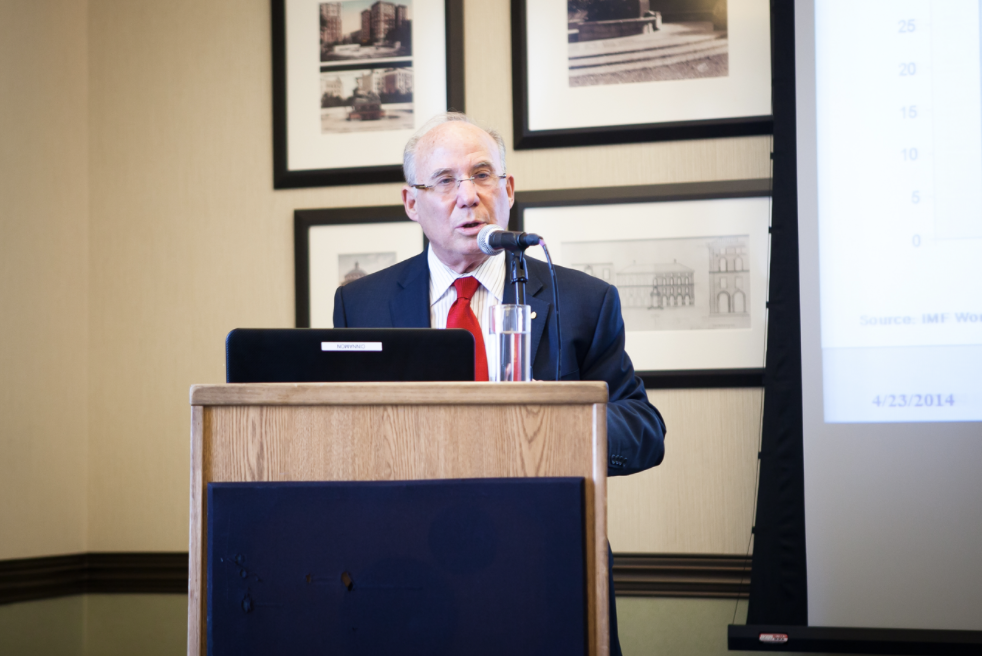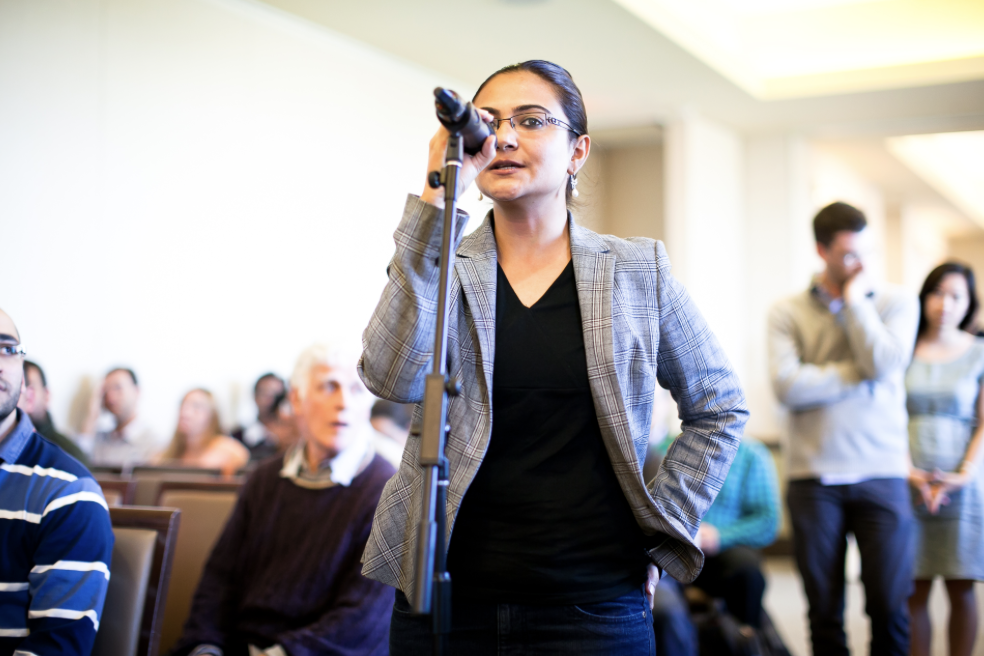On April 23, 2014, Jacob A. Frenkel, Chairman of JPMorgan Chase International and former Governor of the Central Bank of Israel between 1991 and 2000 discussed the long-term trends in the global economy at Columbia University. Merit Janow, Dean of the School of International and Public Affairs, and Jan Svejnar, Director of the Center on Global Economic Governance gave the introductory remarks. In his talk Frenkel discussed issues of growth in the global economy, trade and balance of payments, the European economic system and the U.S. and European labor markets.
According to the IMF World Economic Outlook (WEO), the average annual growth rate for industrial countries is projected at 2.2 percent in 2014 and 2.3 percent in 2015. Developing countries are expected to grow 4.9 percent in 2014 and 5.3 percent in 2015. Jacob Frenkel pointed out that the investment of emerging markets as a proportion of their GDP is greater than the investment of developed countries. Consequently, “the emerging markets participation in global economic governance is non-commensurate with their economic size. We must adjust the global institutions and the quota share.”
Projections of WEO indicate that growth in the United States is expected to be 2.8 percent in 2014 and 3 percent for 2015. Similarly, growth in the Euro area is projected to strengthen to 1 percent in 2014 and 1.4 percent in 2015, but the recovery will be uneven. Similarly, the global GDP growth will be of 3.6 percent in 2014 and 3.9 percent in 2015.
Furthermore, Frenkel identified the changing age structure of the population and global ageing as very important demographic challenges for developed countries.
According to the UN Populations Division, by 2030, the world population will be 8 billion and a half (8517 million people). The projected population in Europe is 786 million; in the U.S., 381 million; in China, 1432 million; in India, 1542 million; and in Africa, 1572 million. Frenkel commented: “Where are these billion and a half going to be? More than 1.4 billion will be in the developing countries. Europe is going to be relatively stagnant and very ageing. China will have 70 million more people, and India will surpass the population of China with 300 million more people”, emphasizing the importance of growth in emerging economies.
Finally, according to Frenkel, the role of China in the world trading chain is manifesting itself: “Of the entire export of Europe to the world only 5 percent went to China. Last year, more than 20 percent went to China. Of the entire exports of the U.S., 7 percent went to China in 2000. Today it is 28 percent.” Frenkel also pointed out that China continues to underspend and save: “Of every dollar produced in China, 50 percent is saved. Meanwhile, the U.S. continues to overspend; of every dollar produced, only 18 percent is saved.” He emphasized that the amount of trade between China and the rest of Asia is much bigger than the trade of China with the West: “Actually, China and India are producing 20 percent of world output”.
In the Q&A, a student asked a question about his views on trade regulations. Frenkel answered: “A nation cannot produce jobs by protectionism; they cannot increase the size of the pie by protectionism. Countries that engaged in isolationism are not strong anymore. We do not protect consumers by avoiding the possibility of buying cheap merchandise from abroad. To sum up, trade openness is the best way to pursue economic growth.”
Jacob Frenkel earned a B.A. in economics and political science at the Hebrew University of Jerusalem, and a Ph.D. in economics at the University of Chicago.
Dariela Sosa, CGEG Research Assistant







